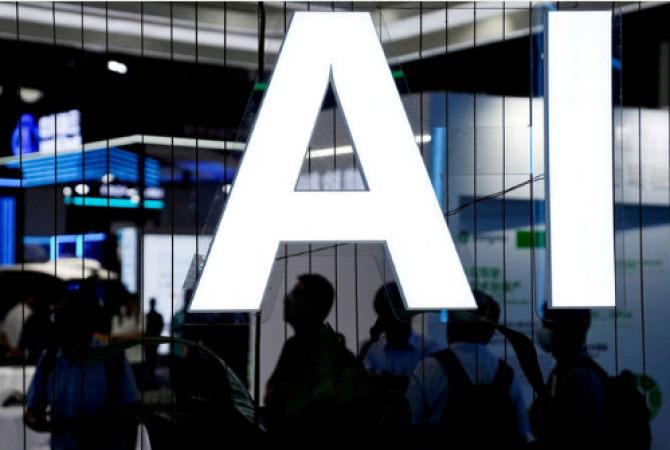
Washington: In a groundbreaking ruling that has far-reaching implications for the realm of creativity and intellectual property, a US court in Washington, D.C. has declared that artworks generated solely by artificial intelligence cannot be eligible for copyright protection under US law.
The decision, handed down by US District Judge Beryl Howell on Friday, reinforces the stance of the Copyright Office, which had previously denied an application submitted by computer scientist Stephen Thaler on behalf of his DABUS system.
Judge Howell's verdict underscores that copyright protection is exclusively reserved for works that have human authors, eliminating the possibility of AI-generated art being granted this legal safeguard.
Also Read:The world's deadliest locations
The DABUS system, short for "Device for the Autonomous Bootstrapping of Unified Sentience," was the centerpiece of Thaler's attempt to secure copyright for AI-generated art.
This recent ruling follows a series of legal setbacks for Thaler, who had pursued US patents for inventions attributed to DABUS. Despite his efforts, the court rejected these patent applications.
Thaler extended his patent pursuit to various other countries including the United Kingdom, South Africa, Australia, and Saudi Arabia, but met with limited success.
Also Read: The world's deadliest disaster to have ever occurred
Ryan Abbott, Thaler's attorney, expressed strong disagreement with the court's decision and announced intentions to appeal. In contrast, the Copyright Office released a statement endorsing the court's conclusion, deeming it as the "correct result."
The rapid expansion of generative artificial intelligence has thrust unique challenges into the intellectual property landscape. The Copyright Office's rejection of an artist's bid to copyright AI-generated images, despite the artist's claim that the AI was an integral part of their creative process, exemplifies the evolving complexities of this field.
Moreover, ongoing legal battles have erupted concerning the usage of copyrighted materials for training generative AI models without proper authorization. As AI continues to become an integral tool for artists, questions surrounding copyright boundaries have surfaced.
Judge Howell acknowledged the novel territory that AI-driven creativity has opened in the world of copyright law. She noted that this case, although significant, is not as intricate as the broader issues that AI-art will present for copyright.
The legal dispute centers around Thaler's application in 2018 to secure copyright for a piece titled "A Recent Entrance to Paradise," which he asserted was entirely composed by his AI system, devoid of any human input. The Copyright Office, however, denied the application, citing the requirement for creative works to emanate from human authors.
Also Read: These are the nuclear-capable countries in the world
Thaler's legal challenge contended that the concept of human authorship isn't a fixed legal criterion. He argued that AI-generated art should be eligible for copyright, aligning with the constitutional purpose of copyright to "promote the progress of science and useful arts."
Judge Howell aligned with the Copyright Office's standpoint, emphasizing that human authorship has deep-rooted historical precedent as a fundamental prerequisite for copyright. She iterated that this requirement was built on centuries of established understanding.
While acknowledging the potential complexities that AI-infused creativity introduces to copyright law, she affirmed the essence of this case as fundamentally straightforward.